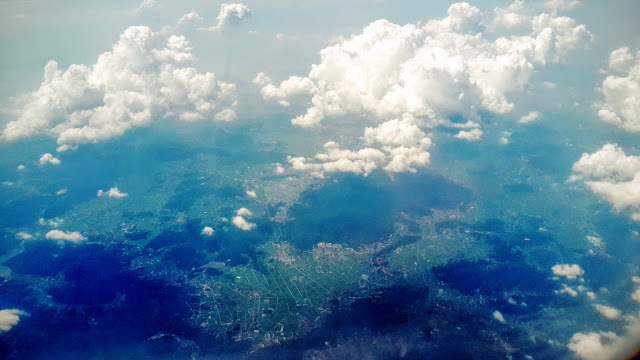Discovering the Unique Charms of Gwangju
Gwangju is what started my fascination in Korea and is partly the reason why I decided to come back here again. It was love at first sight experiencing the simplicity of life and natural wonders of Gwangju landscape. People often underestimate the unique charms Gwangju has to offer but if you take a closer look, there are many hidden gems to be discovered in the city.
1. Mudeungsan Provincial Park. This is the first mountain I've hiked in Korea. What makes it more memorable is that I celebrated my 20th birthday while hiking the mountain.
Mudeungsan National Park (무등산국립공원) is a mountain at the edge of Hwasun-gun, Damyang-gun and Gwangju. Mt. Mudeungsan (1,186m) features three rock peaks called Cheonwangbong, Jiwangbong, and Inwangbong, also known as the “Jeongsang Three."
Mudeungsan’s gradual slope makes it an easy climb for all. Locals once worshiped Cheonwangbong Peak as it was considered a mountain of God.
2. May 18th Memorial Park (5.18 기념공원)
1. Mudeungsan Provincial Park. This is the first mountain I've hiked in Korea. What makes it more memorable is that I celebrated my 20th birthday while hiking the mountain.
Mudeungsan National Park (무등산국립공원) is a mountain at the edge of Hwasun-gun, Damyang-gun and Gwangju. Mt. Mudeungsan (1,186m) features three rock peaks called Cheonwangbong, Jiwangbong, and Inwangbong, also known as the “Jeongsang Three."
Mudeungsan’s gradual slope makes it an easy climb for all. Locals once worshiped Cheonwangbong Peak as it was considered a mountain of God.
2. May 18th Memorial Park (5.18 기념공원)
The aim of this park is to remind all Koreans of the sacrifices of those who died in the Gwangju May 18th Uprising. The park’s facilities include the May 18th Culture Center and the Owolru Tower, as well as the Gwangju Education Center for Students.
3. Gwangju World Cup Stadium. This stadium holds a special place in my heart because behind this stadium is the ice-skating rink where I first learned how to skate.
Gwangju World Cup Stadium is a major symbol of Gwangju. Designed to reflect the notion of ‘spreading far and wide’ the exterior is shaped like spokes of a wheel. When lit up, the stadium looks like a glowing dome. The ceiling and large ‘Y’-shaped pillars resemble a ‘Go,’ an instrument used in a traditional game from Gwangju, Gossaumnori.
4. Kim Daejung Convention Center. Kim Daejung Convention Center named after Kim Dae-Jung, the former president of Korea and a Nobel Peace Prize Laureate. Kim Daejung Convention Center is a state-of-the-art facility in Gwangju, a city with rich cultural heritage and tourism resources. It was built as part of the efforts to promote Gwangju’s competitiveness as a main trade city in northeast Asia to boost local economy and, particularly, tourism resources.
5. Gwangju Universiade- The Universiade is an international sporting and cultural festival which is staged every two years in a different city. This year, Gwangju is the host city for the said event. The concept of the 2015 Gwangju Universiade is 'EPIC'. EPIC symbolises Gwangju's special history as well as its dedication to the Universiade. Standing for 'Eco-friendliness, Peace, IT and Culture', EPIC strives for great epic poetry filled with striking impressions and fervent passion.
Suffice to say, Gwangju will always have a special place in my heart. It served as a second home for me before and the memories I've collected there will forever be treasured.
Credits goes to Korea Tourism Organization


















Comments
Post a Comment